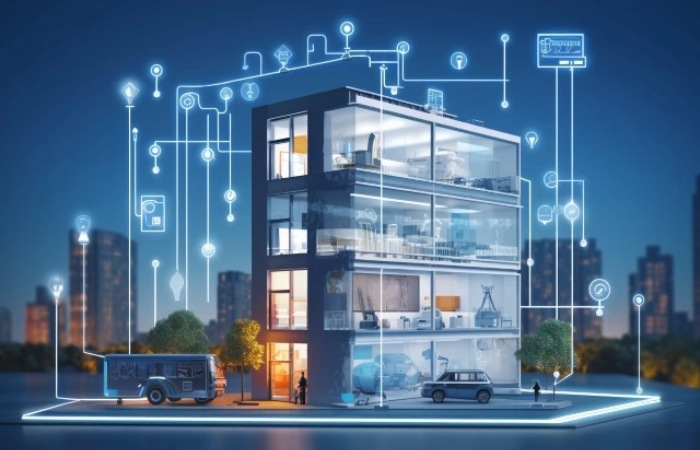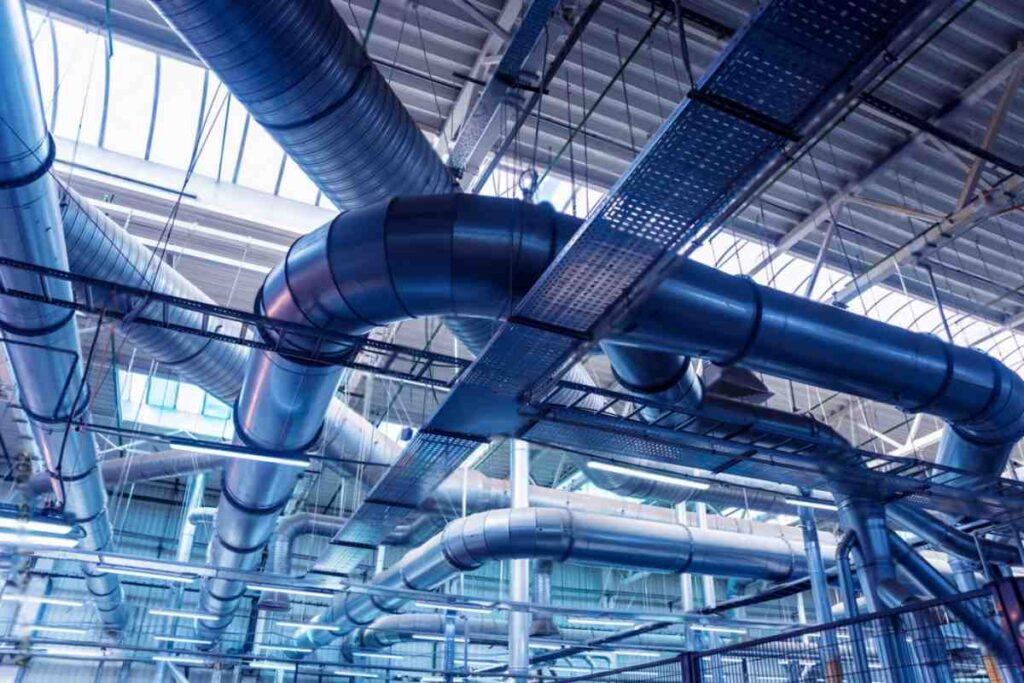The world of heating, airing HVAC Systems, and air conditioning (HVAC) has come a long way and is now one of the most technologically progressive industries. The leading device in this technological revolution in HVAC is smart thermostats, which control the temperature, learn your habits, and act accordingly.
These smart thermostats are so bright that they can be combined with other smart devices like your smartphone and work together for maximum comfort HVAC systems.
Yes, the world of technology has come this far, but that’s not all. The rise of the Internet of Effects, artificial intelligence, and advanced sensors is entirely changing the game. In my 10 years of experience in this industry, I have seen the entry level of technology, and now I see the maximum level. So, stay with me as we go through this beautiful technological revolution.
Integration of IoT in HVAC Systems

IoT (Internet of Things) is a system in which devices are interconnected. These devices can communicate with each other over the Internet and perform actions together. Devices such as smartphones, smart thermostats, air vents, and sensors can work together through the Internet of Things.
Benefits of IoT:
- Remote monitoring and control: The Internet of Things ensures you can control smart devices from your smartphone or computer. For example, you can change the temperature or start the thermostat at home from the office. This can help you feel comfortable when you get home HVAC systems.
- Predictive maintenance: IoT sensors can monitor the operation of HVAC components and provide you with real-time data. This way, you can take preventive measures before your air conditioner completely breaks down. It will give you accurate data on the system’s health, efficiency, and performance and notice if any specific part is not working correctly.
- Energy savings: IoT systems can store your data and reduce your bills. Some intelligent systems also adjust settings based on the weather forecast HVAC systems.
AI & Machine Learning
- Adaptive Temperature Control: The integration of AI is a game changer in the thermostat industry as it can predict the ideal temperature in a given situation.
- Fault Detection and Diagnosis: Machine learning algorithms can monitor data and determine if any specific system components are faulty. AI will work together and tell you what you must do to improve it. This way, you can avoid significant failures before it’s too late HVAC systems.
- Energy Optimization: AI will save you money by reducing energy bills. AI can determine the time and comfort level you need and adjust the system accordingly. It adjusts itself optimally to provide maximum comfort with the least energy consumption.
Advanced HVAC Sensors
Sensors are mainly used to collect system data. They are like a tracker that monitors system information HVAC systems. These sensors collect temperature, humidity, and air quality and then provide the information to the system. The system then collects and processes the data to provide a comfortable life HVAC systems.
Types of Sensors: Why Sensors?
- Occupancy Sensors: Sensors can detect whether you are home, so they turn down the thermostat to reduce bills when you are not home.
- Air Quality Sensors: Sensors are now so advanced that they can detect the presence of pollutants in the air. The system can then adjust the ventilation or activate cleaners to ensure air quality.
Air quality is often ignored, but it is essential to consider it so that residents do not suffer from respiratory problems HVAC systems.
- Humidity Sensors: Some sensors can detect the humidity inside the home. You may have experienced the diversity of weather in the United States. In one part, it may be cold; in another, it may be hot. In addition, the weather in some places is so unpredictable that it is best to install smart thermostats for comfort.
- Energy Optimization: Future technologies aim to save more energy while providing higher performance. The HVAC industry has uniquely done this with advanced sensors. Sensors allow the system to know where and when to heat or cool, making it more efficient and saving energy.
Intelligent HVAC Systems for Commercial Buildings

Nowadays, commercial spaces are adapting to intelligent air conditioning systems that allow them to operate at low costs and with minimal maintenance. However, installing these innovative HVAC systems in a commercial space is complicated for beginners.
Let’s see how an HVAC system can help your commercial space:
- Zoning and customization: Smart systems will divide the commercial space into different zones and maintain the temperature individually. This way, the temperature and humidity can be controlled in different zones without wasting energy in unused spaces.
- Real-time monitoring and control: In most commercial spaces, the building managers manage the innovative HVAC system. This allows them to control from a central control panel and make instant decisions.
- Energy management: Some commercial spaces also include energy management tools that integrate with innovative HVAC systems. This saves substantial energy costs, especially in commercial buildings with huge thermostats requiring much energy.
I have seen commercial buildings save 30% to 40% on energy bills simply by integrating an innovative HVAC system.
Future Trends in HVAC Technology
The future we hope for is always better and brighter, and the future of the modern HVAC industry is no exception. Like everything else, HVAC systems will incorporate cutting-edge technology to make them more adaptable to everyday users. Moreover, future technology solutions will further optimize and deliver maximum performance with minimal energy consumption, pushing the limits of energy efficiency. Advanced artificial intelligence and machine learning in HVAC technology have already begun to understand when a space needs cooling or heating and adjust accordingly.
Future tech to influence HVAC
- Smart Grids: Smart grids enable more efficient distribution and use of energy. It would help to keep heating and cooling in different zones to reduce energy costs. Smart grids also help the environment by ensuring the system is used correctly.
- Blockchain for Energy Management: Blockchain technology can open new doors in this industry. This technology can create decentralized energy markets where homeowners using renewable energy can exchange energy with their neighbors HVAC systems.
- Integration with home systems: The future depends on integrating with other smart devices and creating an ecosystem. Smart devices that work together offer several benefits, including reduced dependency on specific devices, superior efficiency, and, most importantly, effortless control. I like this, and I think most people would like easy control, just like me.
Also, an HVAC system should maximize performance with the least energy consumption and minimal environmental impact. This will be the case in a few years.
Most future technologies we discuss are already on the way; some are already integrated into the system. Smart grids, blockchains, and integration with other intelligent systems are calculated to save energy and reduce utility bills for users HVAC systems.
Mixing the Internet of Things, artificial intelligence, and modern sensors has already improved HVAC systems and made them more comfortable. However, as more advanced technologies enter the industry, the future will be much better than now. The revolution has already begun; we must know how and where to use it.


